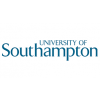- Zoek vacatures
- Groningen
- Full time
- PhD: Artificial Design of Phosphoramidites for Asymmetric Catalysis in Water

PhD : Artificial Design of Phosphoramidites for Asymmetric Catalysis in Water
University PositionsGroningen- Fulltime
PhD positions : Artificial Design of Phosphoramidites for Asymmetric Catalysis in Water (2 x 1.0 FTE)
We are looking for
JOB DESCRIPTION
We are looking for two PhD candidates for a joint project between the groups of prof. Ben Feringa and dr. Robert Pollice, that will be carried out within the framework of the Dutch Growth Fund initiative “Big Chemistry” (). The program “Big Chemistry” was established to position the Netherlands as a global leader in chemical robotics combined with artificial intelligence. By building an autonomous ‘RobotLab’, large numbers of experiments can be carried out, yielding comprehensive datasets on properties of molecular systems.
In this project, we will leverage the combined power of self-driving laboratories and artificial intelligence to accelerate the discovery of phosphoramidite ligands focusing on their use for catalytic reactions in water. Phosphoramidites are monodentate organophosphorus ligands that are effective in a wide range of asymmetric catalytic transformations. Importantly, their combination with other monodentate ligands can result in a substantial enhancement of their catalytic activity and selectivity. This, in conjunction with the modularity of phosphoramidite building blocks, offers a vast chemical space for potential ligands. Furthermore, the development of robust catalytic systems for green processes in water marks one of the current challenges of the chemical industry. Achieving more ambitious sustainability goals necessitates a gradual transition from classical, often halogenated organic solvents to environmentally friendly alternatives. Our project aims to address these challenges by creating innovative, sustainable catalytic systems using phosphoramidite ligands.
Hence, one part of the project will focus on the development of efficient modular synthesis methods for phosphoramidites that can be implemented in automated robotics setups, whereas the second part will focus on exploring novel catalytic conversions, including asymmetric catalysis, in water using robotic screening while expanding the phosphoramidite ligand family and taking advantage of the novel mixed monodentate ligand approach.
The positions we are offering will be within the group of prof. Ben Feringa, in close collaboration with the group of dr. Robert Pollice, embedded within the Stratingh Institute for Chemistry, which is part of the Faculty of Science and Engineering (FSE) at the University of Groningen.
The University of Groningen, established in 1614, is one of the oldest and largest research universities in the Netherlands, offering diverse programs across various disciplines. Located in the lively and historic provincial capital, the university has a vibrant international community, with students and staff from all over the world contributing to a dynamic and multicultural environment. Due to its innovative research initiatives and high-quality education, the University of Groningen is currently in or around the top 100 on several influential ranking lists.
The mission of the Stratingh Institute for Chemistry is to perform excellent research and teaching in molecular and supramolecular chemistry. It focuses on a broad range of topics, including synthetic organic chemistry, catalysis, chemical biology, molecular inorganic chemistry, systems chemistry and materials science. The institute fosters an interdisciplinary approach, encouraging collaboration between researchers from different fields to drive innovation and address complex scientific challenges.
The research programme of the Feringa group focuses on synthetic and physical organic chemistry, inspired by Nature's principles of molecular assembly, recognition, transport, motion, and catalysis. The goal is to create new structures and functions, with an emphasis on molecular switches and motors, dynamic molecular systems, responsive materials, photopharmacology and biohybrid systems. The group also develops novel stereoselective synthesis methods and asymmetric catalysis. Chirality is a leading theme, and over the years, a unique and broad expertise in fundamental aspects of stereochemistry has been acquired including chiroptical phenomena, chiral amplification and the origin of chirality.
The Pollice group is applying technological advances in computing and robotics to the realm of organic chemistry to tackle a problem that has fascinated chemists for more than two centuries, the design of new catalysts. Accordingly, the research interests rest on four main pillars. The primary target is the design of molecular catalysts for organic reactions with the help of computers. To realize that, the group combines the simulation of chemical reactions with lab automation for high-throughput experiments and artificial molecular design algorithms. This allows to incorporate data-driven algorithms directly into the workflow enabling the acceleration of the discovery process.
REQUIREMENTS
We are looking for enthusiastic and talented candidates with :
- A MSc degree in chemistry or a related field
- A clear interest in collaborative interdisciplinary research
- A very strong academic performance
- A proactive attitude and excellent interpersonal skills
- A high level of proficiency in written and spoken English
Experience in synthetic organic chemistry, catalysis and / or programming for (lab) automation is a plus.
Applicants whose first language is not English must submit evidence of competency in English, please see the University of Groningen’s English Language Requirements for details.
CONDITIONS OF EMPLOYMENT
Fixed-term contract : 12 months.
We offer you in accordance with the Collective Labour Agreement for Dutch Universities :
The starting date is flexible, but must be before February 2025.
ADDITIONAL INFORMATION
Dr. Alexander Ryabchun
Lotte Stindt
Dr. Ben Feringa